 Kingsman: The Secret Service
Kingsman: The Secret Service
Starring Colin Firth, Samuel L. Jackson, Michael Caine, Mark Strong, and Taron Egerton
Directed by Matthew Vaughn
Rated R
Run Time: 129 minutes
Genre: Action-Adventure
Opens February 13th
By Eric Forthun of Cinematic Shadows
Kingsman: The Secret Service is an anarchistic, pessimistic, and caustically funny spy caper that stands as the most thrilling action film to be released by a major studio in years. While most will peg the film as a British actioner in the vein of James Bond due to its source material, cast, and even most of its crew, that typecast defies every convention that the film aims to undermine. Throw away predictable spy tropes and intense action scenes without any care for the violence they are inflicting; the audience here is asked to revel, revolt, and altogether examine why we must senselessly watch long bouts of extreme violence. Every moment is infused with character, empathy, sophistication, and humor. It's a difficult, near impossible mix of tone and quality that are unrecognizable in practically any way; I have, simply put, never seen a seething satire with as much skip in its step and weight in its heart as this one. Director Matthew Vaughn has made his best film to date, and one of the decade's most distinct, thrilling visions of modern socio-political world affairs.
Harry Hart (Colin Firth) is a veteran agent within a secret service in the United Kingdom. They call themselves the "Kingsman" service, a name that comes from the store that makes all of their tailor-made suits and acts as their unofficial headquarters. Enter through practically any dressing room and there are weapons hiding in secret compartments, an elevator that heads down hundreds of feet to an underground transportation system in the center of England, and of course the standard mirrors and hooks to ensure people fit their suits correctly. After the death of one of Harry's co-workers, he realizes the deceased saved his life and heads home to console the wife and newborn son. He provides them with a necklace engraved with a number that, when called, will provide them help when they need it most. That child turns out to be "Eggsy" (Taron Egerton), a rebellious teenager living with his downward-spiraling mother and newborn sister. His family life is hell because his stepfather is a repulsive, abusive man, so naturally he acts out and gets himself into far too much trouble.
In comes Harry to save the day, and their journey begins. World leaders are being kidnapped around the world without any hint of their location; it's at the whim of a madman, one who turns out to be a billionaire tech genius named Valentine (Samuel L. Jackson) with a lisp and all of the power in the world. When he unveils his new product to the masses, everyone lines up for the free technology that will obviously carry ulterior functions. Harry and crew, including the resourceful Merlin (Mark Strong) and the old-blood Arthur (Michael Caine), aim to take down Valentine and save the world from a deadly, greedy, and evil plan. While many of these elements sound conventional and commonplace in the traditional spy film, Kingsman takes them and infuses every one of their occurrences with comedy and social awareness. Valentine acts as a man driven by greed and power who has gone practically insane, while people like Harry and Eggsy come from lower social rank and feel the weight of the wealthy leaders' actions. That's one of the many themes explored underneath the action-packed surface.
Kingsman ends up being an absolute blast without a care for audience expectation or predictability. There's something inherently zany and exciting in practically every scene, yet almost every moment is prefaced with concrete context and the stakes at hand. The audience is never left as pure spectator, but almost taking place within the picture itself. Vaughn asks us to introspectively revel at the action when incredibly violent scenes take place, yet they often end with the "hero" either facing a certain realistic peril or regretting their mayhem. Even a scene within a Southern Baptist Church where members spew hate is filled with a certain level of sympathy; that's a huge testament to the filmmaking power on display here. Major characters also die more often than expected and the film uses remarkably unconventional action, including an amazing villain with blades for legs. A random, loving ode to The Shining gains social meaning while the peril of children and even dogs are not used to excite, but to terrify. Kingsman: The Secret Service respects the audience, asks them to enjoy the ride, and simultaneously makes them feel weary about everything they have just seen. It's an amazingly confident, brutally honest take on the action genre.

 Fifty Shades of Grey
Fifty Shades of Grey
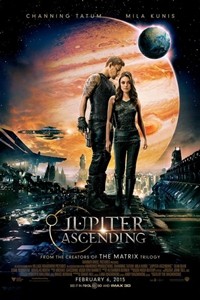 Jupiter Ascending
Jupiter Ascending
 The film’s producer, Mark Stolaroff, represented at PFF 2014, accepting three awards: Best Picture; Best Director – Henry Barrial; and Best Screenplay – Joseph Vasquez (sadly, Vasquez died in 1995, never to see his last screenplay produced).
The film’s producer, Mark Stolaroff, represented at PFF 2014, accepting three awards: Best Picture; Best Director – Henry Barrial; and Best Screenplay – Joseph Vasquez (sadly, Vasquez died in 1995, never to see his last screenplay produced).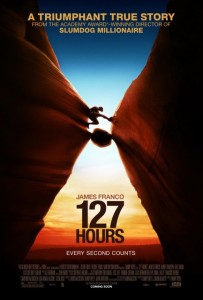
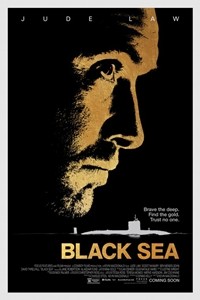 Black Sea
Black Sea
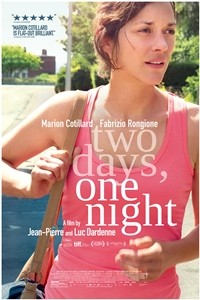 Two Days, One Night
Two Days, One Night
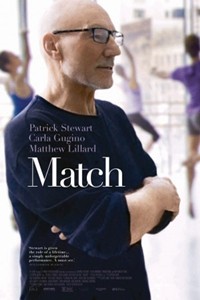 Match
Match
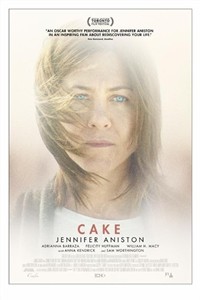 Cake
Cake
 Winter Sleep
Winter Sleep
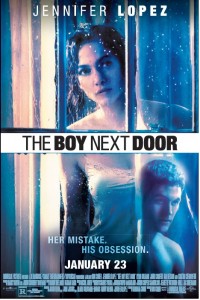 The Boy Next Door
The Boy Next Door
 King of Herrings
Dir: Eddie Jemison and Sean Richardson
King of Herrings
Dir: Eddie Jemison and Sean Richardson interesting quality of identifiable people. The leader with a Napoleon complex, the supportive to a fault friend, the peacemaker who keeps everyone calm, the friend who is waiting to take over, the lonely woman on the verge of self-discovery; these characters are all well rendered here. It’s a compliment to the narrative structure, which moves somewhat aimlessly, that these difficult characters remain believable amidst all the underhandedness that transpires. Though it’s easier to accomplish this when you have such a talented cast. Eddie Jemison is in the spotlight and accomplishes the task of becoming a loathsome character in the first few minutes of screen time. This continues throughout as Ditch vehemently muses on aspects of love, sex, marriage, and friendship. It’s comic yet wholly serious, a thin line that displays Jemison’s skill. Joe Chrest does a great job as The Professor, moving from an insufferable smart aleck, to a revenge-seeking degenerate, to a confused suitor; you never know what aspect of the character is genuine if any at all. The best character in the mix comes along unexpectedly in the form of Laura Lamson who plays Ditch’s wife Mary. Her character is mistreated and degraded by Ditch throughout, relinquished to an almost captive state as a lonely woman desperate for escape and the self-esteem to stand up to her husband. Lamson starts off subdued but slowly emerges as the strongest character amidst a group of men whose misguided masculinity in a way becomes their vulnerable limitation.
interesting quality of identifiable people. The leader with a Napoleon complex, the supportive to a fault friend, the peacemaker who keeps everyone calm, the friend who is waiting to take over, the lonely woman on the verge of self-discovery; these characters are all well rendered here. It’s a compliment to the narrative structure, which moves somewhat aimlessly, that these difficult characters remain believable amidst all the underhandedness that transpires. Though it’s easier to accomplish this when you have such a talented cast. Eddie Jemison is in the spotlight and accomplishes the task of becoming a loathsome character in the first few minutes of screen time. This continues throughout as Ditch vehemently muses on aspects of love, sex, marriage, and friendship. It’s comic yet wholly serious, a thin line that displays Jemison’s skill. Joe Chrest does a great job as The Professor, moving from an insufferable smart aleck, to a revenge-seeking degenerate, to a confused suitor; you never know what aspect of the character is genuine if any at all. The best character in the mix comes along unexpectedly in the form of Laura Lamson who plays Ditch’s wife Mary. Her character is mistreated and degraded by Ditch throughout, relinquished to an almost captive state as a lonely woman desperate for escape and the self-esteem to stand up to her husband. Lamson starts off subdued but slowly emerges as the strongest character amidst a group of men whose misguided masculinity in a way becomes their vulnerable limitation. actress Laura Lamson, the actor-director’s real-life wife. Lamson plays Mary, much-better half to Jemison’s Ditch, the wildly offensive leader to his circle of misfits and miscreants. When Ditch pushes his caustic sense of humor a little too far within the group, The Professor (played by Joe Chrest) plans a retaliatory strike by befriending Mary, Ditch’s lonely seamstress wife.
actress Laura Lamson, the actor-director’s real-life wife. Lamson plays Mary, much-better half to Jemison’s Ditch, the wildly offensive leader to his circle of misfits and miscreants. When Ditch pushes his caustic sense of humor a little too far within the group, The Professor (played by Joe Chrest) plans a retaliatory strike by befriending Mary, Ditch’s lonely seamstress wife. Winner of the Breakthrough Filmmakers Award at the 2014 Phoenix Film Festival, King of Herrings releases this
Winner of the Breakthrough Filmmakers Award at the 2014 Phoenix Film Festival, King of Herrings releases this  and Augie (John Mese). They're a ragtag group of friends that always seem to fight over trivial matters in New Orleans. The catalyst for the story involves a debt of nine dollars that's completely asinine in the grand scheme of things, but to these men means everything. It's a semblance of respect and honor that they cannot seem to fulfill that haunts their decisions and leads to increasingly disrespectful actions: adultery, threatening, violence, and anything else that could possibly destroy friendships. The characters aren't relatable in their actions but in their emotions; I cared for the characters when I could see compassion shining through their tomfoolery. Characters need heart and Jemison's film allows them that, even if there are slight bouts of misogyny that pervade the men's decision-making. King of Herrings meanders in the middle as the characters' actions begin to feel a bit strained, but the conclusion is worthwhile and a reminder that comedies must have notes of tragedy or else, well, what are we laughing at?
and Augie (John Mese). They're a ragtag group of friends that always seem to fight over trivial matters in New Orleans. The catalyst for the story involves a debt of nine dollars that's completely asinine in the grand scheme of things, but to these men means everything. It's a semblance of respect and honor that they cannot seem to fulfill that haunts their decisions and leads to increasingly disrespectful actions: adultery, threatening, violence, and anything else that could possibly destroy friendships. The characters aren't relatable in their actions but in their emotions; I cared for the characters when I could see compassion shining through their tomfoolery. Characters need heart and Jemison's film allows them that, even if there are slight bouts of misogyny that pervade the men's decision-making. King of Herrings meanders in the middle as the characters' actions begin to feel a bit strained, but the conclusion is worthwhile and a reminder that comedies must have notes of tragedy or else, well, what are we laughing at? A Most Violent Year
A Most Violent Year
 American Sniper
American Sniper
 Blackhat
Blackhat








